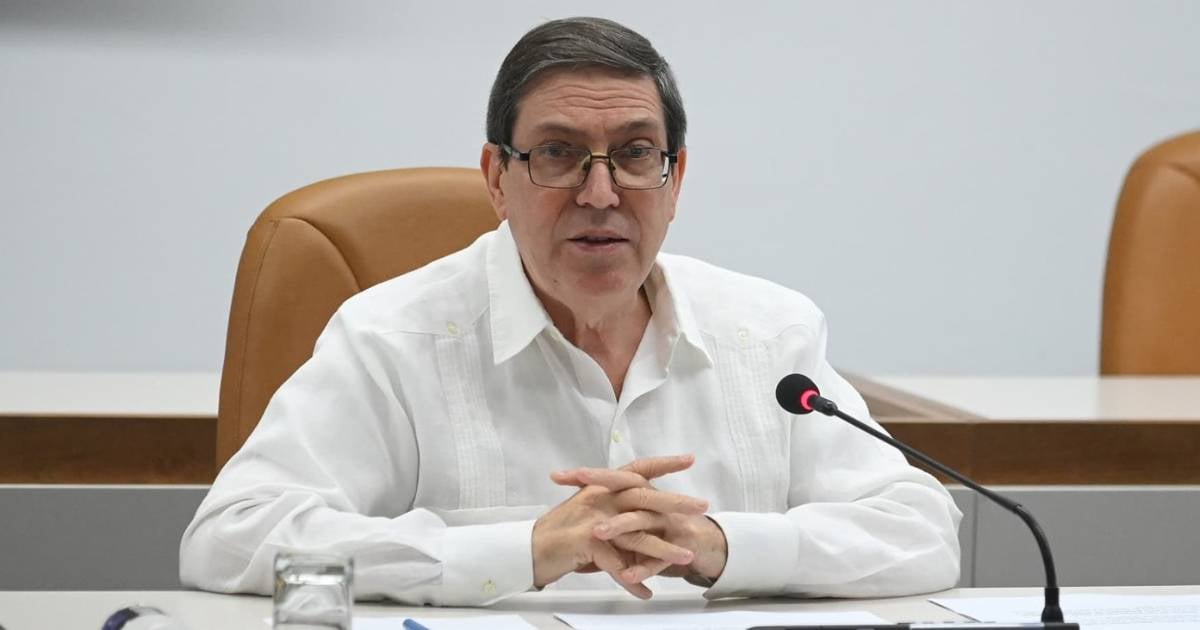In a swift response, the Cuban regime lashed out at dissidents on the island this Wednesday following comments by U.S. Secretary of State, Marco Rubio. True to form, the Cuban government attacked its critics, branding them as "paid agents" and "corrupt operatives" working for the United States. Cuban Foreign Minister Bruno Rodríguez Parrilla took to the social media platform X to target Cuban opposition figures after Rubio publicly endorsed the Cuban people's right to protest, coinciding with the upcoming fourth anniversary of the July 11, 2021, demonstrations (11J).
"The Secretary of State urges his paid agents in #Cuba to undermine the constitutional order and to follow the orders of those who cause suffering to the Cuban people," Rodríguez wrote. "While using federal funds to enrich their corrupt operatives, millions of U.S. citizens will be without healthcare," he added.
Quick to Respond Abroad, Silent at Home
Time and again, the Cuban government is quick and forceful in its responses to any statements related to the United States, yet it remains silent regarding the internal demands of its citizens. Cubans continue to endure power outages, food shortages, unaffordable prices, and collapsing services. While it attacks critics from abroad on social media, the government fails to provide tangible solutions to its people's most basic needs, despite having absolute power and control over media, ministries, and all national resources. The people of Cuba remain in dire need of electricity, rice, medicine, and transportation, receiving only rhetoric and repression instead.
Verbal Attacks Ramp Up Before 11J
The foreign minister's message is part of a well-known strategy by the Cuban regime: intensifying propaganda and verbal assaults in the lead-up to sensitive dates, such as July 11, which marks the most significant social uprising the island has witnessed in decades. Meanwhile, human rights organizations and activists within Cuba warn of increased surveillance, summons, preventive detentions, and social control operations as part of the repressive measures ahead of the date.
The verbal offensives from the regime are nothing new. What remains surprising is its persistent inability to listen to the Cuban people, who took to the streets shouting "Liberty" four years ago and are still waiting for answers that never come.
Marco Rubio Sparks Communist Outrage
Marco Rubio reiterated his support for the fight for freedom in Cuba through a message sent to dissidents, independent journalists, and families of political prisoners who gathered at the residence of U.S. Chargé d'Affaires in Havana, Mike Hammer. The U.S. Secretary of State addressed attendees in a video presentation, which also featured a virtual appearance by Deputy Secretary of State Christopher Landau.
"I know it's not easy to live on that enslaved island and face a regime that does everything it can to punish you. But you don't give up, and that inspires us," Rubio said in the video. According to Martí Noticias, Rubio emphasized that the regime's repression has not silenced the Cuban people's cry for freedom. "The 11J marked a change. It was an inspiration for all who love freedom and dream of a free, sovereign, and independent Cuba."
"It is an honor to address a group of brave Cuban dissidents and independent journalists to reaffirm our support for a free, sovereign, and independent Cuba. #PatriaYVida #11J," Rubio posted on X, alongside a photo of the meeting. The gathering, organized to mark the fourth anniversary of the July 11, 2021, protests, served as a gesture of encouragement from Mike Hammer to Cuban civil society.
The event took place under tight security measures to prevent the regime from arresting attendees, as had happened days earlier during the Fourth of July celebration at the U.S. Embassy in Havana.
Understanding the Cuban Regime's Tactics and International Reactions
Why does the Cuban regime label dissidents as "paid agents"?
The Cuban regime often labels dissidents as "paid agents" to discredit their legitimacy and portray them as foreign operatives working against national interests. This is a common tactic to undermine opposition and maintain control.
What is the significance of the July 11 protests in Cuba?
The July 11 protests, known as 11J, were significant as they marked the largest anti-government demonstrations in Cuba in decades. They highlighted widespread discontent with the government and a desire for freedom and reform.
How has the international community reacted to the Cuban regime's repression?
The international community, including the United States and various human rights organizations, has condemned the Cuban regime's repression. They have called for the release of political prisoners and expressed support for the Cuban people's right to protest.
